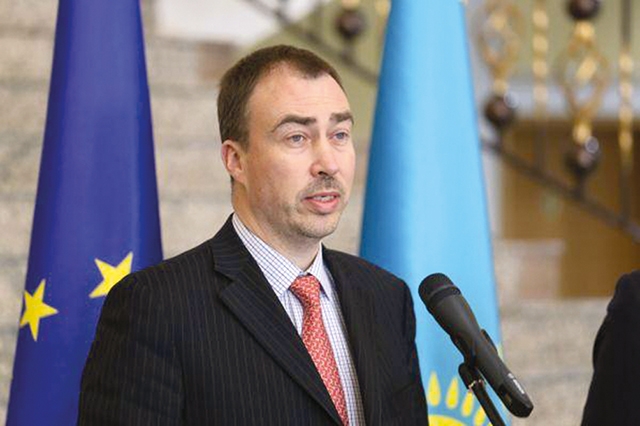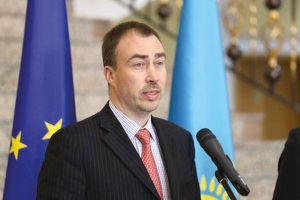EU Special Representative: De-Escalation at ABL Necessary
The European Union Special Representative for the Crisis in Georgia and the South Caucasus, Tovio Klaar, commented on the recent developments at the Administrative Boundary Line (ABL) with Georgia’s Russian-occupied South Ossetia region, saying the crossing points near Tsnelisi-Chorchana need to be reopened and the situation improved.
In his interview with TV Imedi, Klaar stressed that the situation on the ground today has not been this complicated for many years.
He added that international discussions will be held in Tbilisi, occupied Tskhinvali, Sokhumi and Moscow and that all participants agree that the situation should be de-escalated.
"This is the starting point, the foundation and the progress we need to be able to work from based on the specific situation on the ground," Klaar said.
He noted that the main thing is to alleviate the living conditions of the locals at the ABL.
“My main message during the scheduled meetings will be the following: this is an undesirable situation and we need to find a way to solve it. This means de-escalation and incident prevention. This is the short-term main goal,” he said.
He stated that all co-chairs of the Geneva International Discussions agree that it is necessary to de-escalate the situation near Chorchana-Tsnelisi.
“Everyone realizes that today we have a situation we haven't had in many years. This refers to Chorchana-Tsnelisi, where armed personnel are very close to each other,” he said.
Klaar says that everyone is well aware of the role of the EU Monitoring Mission and their major contribution to ensuring on-site stability.
“This is acknowledged by Tbilisi and by Moscow, among others. The EU Monitoring Mission has a hotline to assist the parties to exchange messages,” he said, adding that Incident Prevention and Response Mechanism Meetings (IPRM) are of utmost importance for all sides and need to continue.
“It is unacceptable to set preconditions for meeting participants. This is a useful and necessary mechanism considering all its elements. I hope the meetings in Gali will be resumed in the shortest possible time, as happened in Ergneti,” he said.
The last IPRM meeting, held in Ergneti a few days ago to reduce tensions in the villages of Tsnelisi and Chorchana, ended without any progress having been made.
Tensions in the zone began at the end of August, when Tbilisi opened a standard police post in the village of Chorchana, Khashuri municipality, which is located on Tbilisi-controlled territory.
The de facto authorities of Tskhinvali say that the crossing points to the region, closed since September 4, will reopen only when the police post is removed, adding it “creates threats to locals and is too close to the village of Tsnelisi,” which is under the control of the occupants.
Breakaway South Ossetia’s delegation walked out of the IPRM meeting on August 29 after Georgia refused to remove the police post. After this, they enhanced their own presence in the border area.
The de facto authorities said on September 12 that the Georgian side was reinforcing its forces at the so called border and was building more checkpoints.
In addition to this, on November 5, occupied South Ossetia reported shooting from the Georgian side near Tsnelisi but the Georgian State Security Service denied these reports and assessed it as "misinformation and a provocative statement.”
In the following days, the occupants reported “more shootings” from the Georgian side and stressed "the unprecedented increase in the activities of Georgian military and police drones in the border area in the period from November 8 to 11."
Breakaway South Ossetia, along with the other Russian-occupied Georgian region Abkhazia, have been under Russian control since the August 2008 war, which left 20% of Georgia occupied by its northern neighbor.
By Tea Mariamidze
Image source: trend.az












